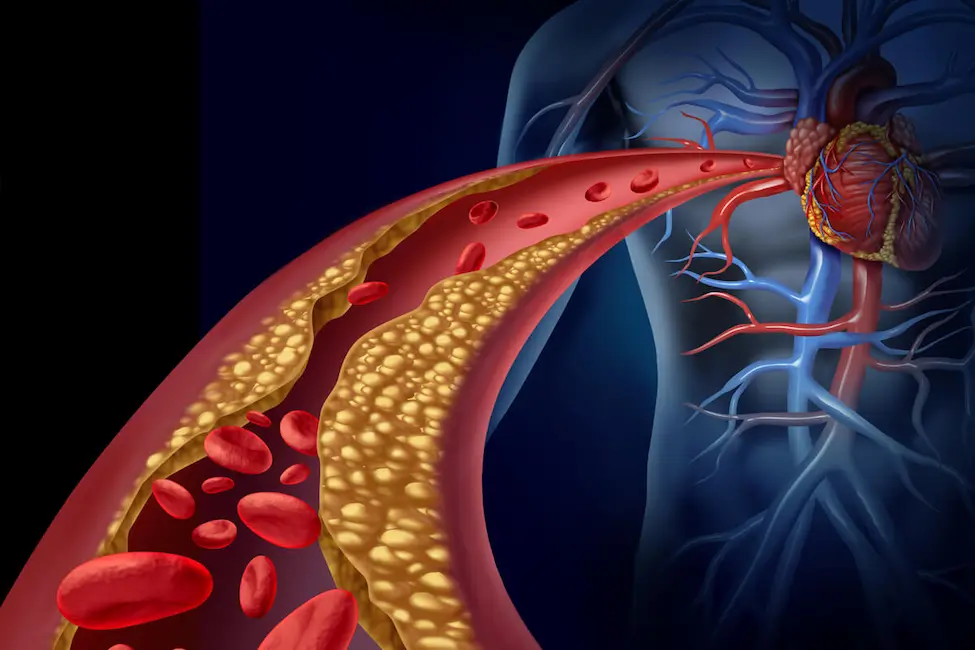
خمسة لضمان مستويات كوليسترول متوازنة
خمسة لضمان مستويات كوليسترول متوازنة
يحتاج جسم الإنسان إلى الكوليسترول لبناء الخلايا السليمة والهرمونات وأداء بعض الوظائف الحيوية، لكن من المهم أن يعرف الشخص مستويات الكوليسترول لديه ليكون على دراية بمخاطر الإصابة بأمراض القلب.
وتعرف مستويات الكوليسترول في الجسم بالكولسترول الجيد HDL والكولسترول السيئ LDL، ويمكن لمستويات مرتفعة للغاية من الكوليسترول في الجسم أن تدخل جدار الشرايين وتشكل رواسب صلبة تؤدي إلى أمراض القلب. لذلك، بحسب ما نشره موقع Jagran، يوصي الخبراء ببعض تغييرات في نمط الحياة لضمان مستويات متوازنة من الكوليسترول، كما يلي:
1. تقليل الدهون المشبعة
يشار إلى الدهون المشبعة باسم “الدهون السيئة” وتوجد في الأطعمة الحيوانية مثل لحم البقر والدواجن ومنتجات الألبان كاملة الدسم. وفقا لموقع “مايو كلينيك”، يمكن للدهون المشبعة أن ترفع نسبة الكوليسترول الكلي في الجسم، لذا فإن تقليل استهلاك الدهون المشبعة يمكن أن يقلل من كوليسترول البروتين الدهني منخفض الكثافة LDL وهو الكوليسترول “الضار”.
2. زيادة الألياف القابلة للذوبان
تذوب الألياف القابلة للذوبان بسهولة في الماء وتتحلل أيضًا إلى مادة تشبه الهلام في القولون، ويمكن أن تقلل من امتصاص الكوليسترول في مجرى الدم، وتشمل بعض أفضل المصادر الغذائية للألياف القابلة للذوبان الفاصوليا والشعير والتفاح والشوفان والأفوكادو والقرنبيط وبذور الشيا والبطاطا الحلوة.
3. بروتين مصل اللبن
يتم الحصول على بروتين مصل اللبن من مصل اللبن، وهو الجزء المائي من الحليب الذي ينفصل عن الخثارة عند صنع الجبن، يزيد بروتين مصل اللبن من المحتوى الغذائي للنظام الغذائي وله فوائد مذهلة على جهاز المناعة. بحسب موقع “مايو كلينيك”، إن تناول بروتين مصل اللبن كمكمل غذائي يخفض كلاً من الكوليسترول الضار والكوليسترول الكلي وكذلك ضغط الدم.
4. أحماض أوميغا-3 الدهنية
تعتبر أحماض أوميغا-3 الدهنية، المعروفة باسم الدهون الصحية، من العناصر الغذائية الصحية بشكل لا يصدق، والتي يجب أن تكون جزءًا من النظام الغذائي اليومي. يوضح موقع “كليفلاند كلينك” أن أحماض أوميغا-3 الدهنية تساعد على خفض مستويات الدهون الثلاثية.
وإن وجود الكثير من الدهون الثلاثية في الدم (فرط ثلاثي غليسريد الدم) يزيد من خطر الإصابة بتصلب الشرايين، ومن خلال ذلك، يمكن أن يزيد من خطر الإصابة بأمراض القلب والسكتة الدماغية.
5. القضاء على الدهون المتحولة
يؤدي النظام الغذائي الغني بالدهون المتحولة إلى زيادة في خطر الإصابة بأمراض القلب، التي تؤدي بحياة ملايين البالغين حول العالم. وبحسب ما نشره موقع “مايو كلينك”، فإنه كلما زاد تناول الدهون المتحولة، زاد خطر الإصابة بأمراض القلب والأوعية الدموية.






